Denver Votes To Decriminalize Psychadelic Mushrooms
In a first of its kind move, voters in Denver have voted to decriminalize psychedelic mushrooms.
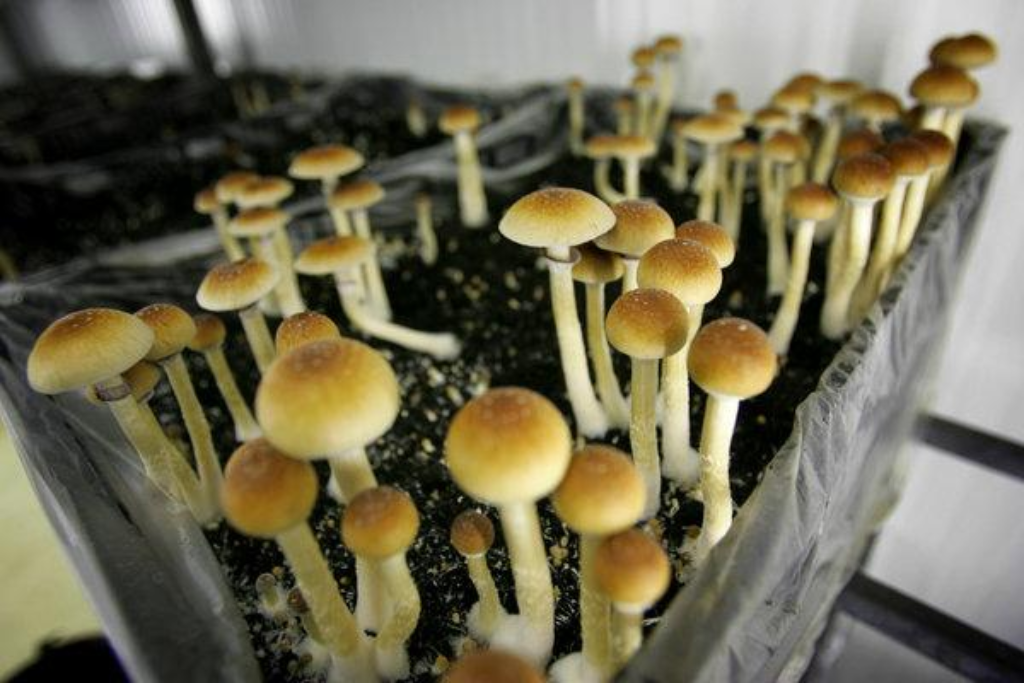
On Tuesday, voters in Denver approved a ballot measure that decriminalizes the possession of psychedelic mushrooms to the point where possession by the average person is basically the equivalent of a traffic ticket:
Voters in Denver, a city at the forefront of the widening national debate over legalizing marijuana, have become the first in the nation to effectively decriminalize another recreational drug: hallucinogenic mushrooms.
The local ballot measure did not quite legalize the mushrooms that contain psilocybin, a naturally occurring psychedelic compound. State and federal regulations would have to change to accomplish that.
But the measure made the possession, use or cultivation of the mushrooms by people aged 21 or older the lowest-priority crime for law enforcement in the city of Denver and Denver County. Arrests and prosecutions, already fairly rare, would all but disappear.
Results posted by the city as a “final unofficial” tally late on Wednesday showed the “Yes” vote won by less than 2,000 ballots. The “No” vote had led throughout the day, until the last updated count by elections officials. Alton P. Dillard, the elections spokesman, said the passage appeared safe, but the final results would not be certified until May 16.
“We won!!!!” the group called Decriminalize Denver that had been pushing the measure, said in a jubilant post on Facebook.
Adoption of the measure, by a margin so close that the measure was initially thought to have been rejected, signaled fledgling public acceptance of a mind-altering drug, outlawed nationally for nearly 50 years, that recent research suggests could have beneficial medical uses. A similar effort failed to get on the ballot in California last year, but it could come up again in 2020; Oregon voters may also vote on a comparable measure next year.
“It’s surreal,” said Travis Tyler Fluck, a field organizer for the campaign to pass the measure, suggesting that Denver had a sizable population of “psychedelic constituents.”
“People just don’t see it as a threat,” he added. “Compared to the ‘sinister’ LSD, magic mushrooms are tame.”
Proponents of more lenient criminal enforcement of psilocybin cite studies indicating that the drug can be beneficial for treating depression and anxiety among cancer patients. Other studies have identified potential uses in therapy for alcoholics and people trying to quit smoking, and in treating depression in people who do not have cancer.
“Because psilocybin has such tremendous medical potential, there’s no reason individuals should be criminalized for using something that grows naturally,” said Kevin Matthews, the director of the pro-mushrooms campaign.
(…)
Psilocybin is not addictive, and “there’s no direct lethal overdose” of the drug on record, Dr. Johnson said.
Researchers who study psilocybin’s effects use a synthetic version of the drug in carefully controlled environments, he said, which is different from someone growing mushrooms and ingesting them at home.
The ballot measure, Initiated Ordinance 301, would also establish a panel to review the law’s impact on public health and safety.
In advance of the vote, Art Way, the Colorado state director for a pro-legalization advocacy group, the Drug Policy Alliance, praised the local effort in Denver to move psilocybin enforcement off the police’s radar.
But he cautioned against tackling the issue piecemeal.
“Separating some drugs as good and some as bad will only stand to perpetuate the drug war,” he said.
This is not the first time that Colorado has taken the first steps when it comes to stepping back from the aggressive enforcement of the War On (Some) Drugs. Seven years ago, it joined Washington as the first of two states to legalize recreational use of marijuana, a movement that has swept the nation over the past seven years to the point where it is now effectively a consensus issue even among formerly skeptical Republicans. Thanks to that we are now at the point where marijuana is legal in ten states and the District of Columbia, with more states, such as New Jersey and New York, likely to soon join the list. Given the fact that Colorado was a pioneer in the legalization of pot, it’s not surprising that voters in its capital city would be pioneers in legalizing other illegal drugs and substances.
Putting my libertarian hat on for the moment, this is obviously a positive development from both an individual rights perspective and a public policy perspective. It’s long been my position that individuals should be free to ingest whatever mind-altering substances they wish. Obviously, this doesn’t mean that people should be free from the consequences of what might happen if they do so while engaging in potentially risky behavior like driving a car, of course. It also does not mean that private employers and even, in appropriate circumstances, the government should not be able to punish people who use such substances and put others in danger. For example, there is nothing wrong with people such as airplane pilots, train engineers, or others in positions of public responsibility being required to take drug tests and being barred from working if they test positive for mind-altering substances or are high, drunk, or otherwise impaired while on duty. What it does mean, though, is that people should be free to use any “illegal” drug they choose if they choose to do so. This is a position I’ve held for so long I can hardly remember when I didn’t believe it.
To my knowledge, this is the first time that any jurisdiction has taken steps to legalize or decriminalize any substance other than marijuana. Whether it’s the beginning of a trend, though, is unclear. Psychedelic mushrooms are not exactly as much a part of the cultural zeitgeist as marijuana, so I’m not sure that this move in Denver is going to start the same kind of tidal wave that Colorado did when it legalized pot seven years ago. It is a positive step in the right direction, though, and the voters in Denver deserve credit for being smart enough to take it.

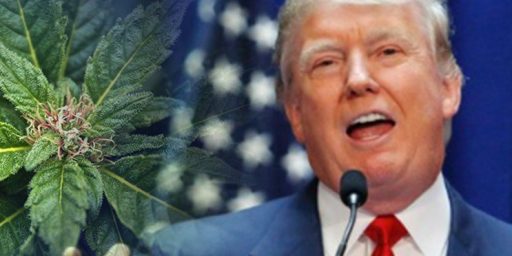
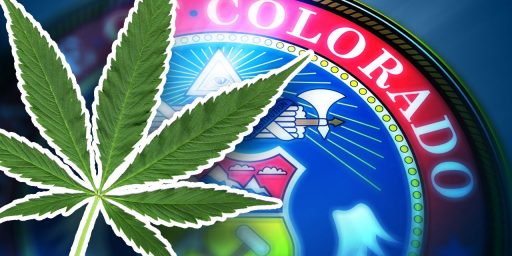
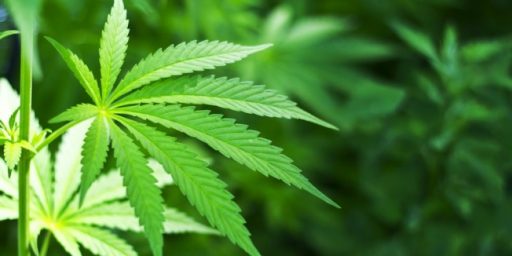
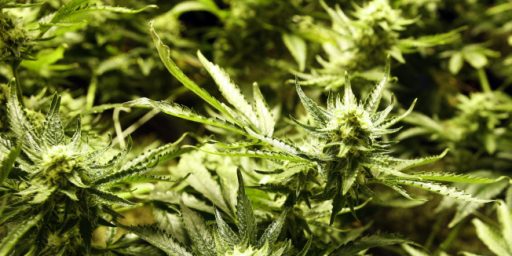
As long as you aren’t hurting anyone or causing any kind of problem, you should be free to take whatever you wish. My only potential objection is in terms of healthcare – the strain it can put on resources and what’s owed to someone who’s deliberating inflicting such damage on themselves. As we move towards universal healthcare and with the whole “opioid crisis” panic, it’s a question we need to have answered as a nation fairly soon.
Do what you will but understand there’s a cost. Drink what you want, smoke what you want, hell eat all the sugar in the world and get the world’s worst case of diabetes. It’s your choice and no one should be able to stop you. However, don’t expect the same healthcare at the same cost as everyone else. Don’t expect the same level of treatment and priority. Don’t expect us to save you if you OD or your liver craps out – we’ll try but that only goes so far. Freedom ain’t free and if this is how you end up paying for it, go into it with eyes open.
@KM:
To the extent we’re talking about addictive drugs, my position is that it should be treated as a health care issue not a criminal law issue.
Good.
No doubt those who favor prohibition and the war on drugs, will point to this as the beginning of the slippery slope started when marijuana was legalized.
I hope they’re right.
I’ve no doubt the direct damage from drugs will be greater if they’re legalized, with exceptions, but also the overall damage of the combination of drugs+prohibition will be far less.
@KM:
Sugar is different. Processed food has a lot more sugar than people realize, and a lot more than they would use themselves. People aren’t making a choice to eat all that sugar (not that many people actually have a diet of cookies and ice cream), it’s being snuck into their food.
It also recalibrates your taste buds so unprocessed food tastes bland — you need the salt, sugar and fat.
It’s also cheap and easy, so it becomes a plague upon the poor.
I favor sunset provisions for legalization of psilocybin. Let Denver allow it for five years and in five years have another look to assess for harm.
I favor sunset or “trial” provisions for lots of things.
Joe Rogan is stoked. It’s a good move anyway. Most people don’t want anything to do with magic mushrooms, but those who do….should be unfettered by law enforcement.
@KM:
I see that being used for very bad ends. What if society deems you an aberration, like they did gay people during the AIDS crisis?
@Gustopher:
I can vouch for that. About a year ago I decided to cut down on sugar. This meant avoiding products with sugar listed in the ingredients. it’s amazing how many packaged products have sugar. things like spaghetti sauce, all cereals (including the “healthy” ones like Special K or Corn Flakes), pretty much all bottled sauces (soy sauce being the major exception), some brands of chicken bouillon, etc.
BTW, one ought to be particularly suspicious of products marked as containing 0% sugar, no-sugar, and no sugar added. Some are legitimate, but many more add corn syrup or fructose, which is not sugar per se but it’s not that different in effect.
Funny weird related fact: Quaker Oats 0% sugar strawberry instant oatmeal has no strawberries. the ingredients, which I read carefully, say “strawberry-flavored apple flakes.”
Do I see an opportunity here?
@James Pearce:
As a rule of thumb, keeping Joe Rogan from being stoked is a good policy. Maybe we should rethink this.
(He’s also a big fan of sensory deprivation float tanks, which are ridiculous, hippie dippie nonsense that really helps my lower back.)
@Gustopher:
I kind of like Joe Rogan, pseudo-intellectualism and all. However you stereotype him, it won’t fit.
@James Pearce:
Count me as a sometimes-fan of Rogan. My issue is that he doesn’t have much of a bullshit filter. Oh Andrew Yang wants everyone to have a basic income? That’s really interesting, we should chat. Some professor is interested in epigenetics? That’s cool, we should chat. Alex Jones thinks the government is trying to create gay frogs as an elaborate plot to something something? That’s cool, we should chat.
But this caricature of a dark web, homophobic, psuedo-intellectual the left has made him out to be is not accurate.